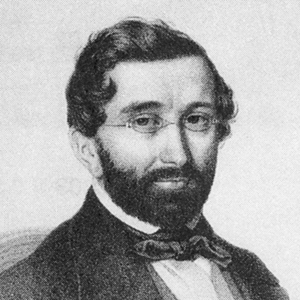Adolphe Charles Adam
Info
Paris, France
05/03/1856
Paris, France
France
Romantic
Opera
Biography
Adolphe Charles Adam, born on July 24, 1803, in Paris, France, is a name that resonates with charm and romanticism in the world of classical music. His legacy, woven with the threads of melody, operas, and ballets, leaves an indelible mark on the tapestry of 19th-century music.
Early Life and Education
Adam was born into a musical family; his father, Jean-Louis Adam, was a pianist, composer, and teacher, which naturally influenced Adolphe's early and profound exposure to music. He entered the Paris Conservatoire at a young age, where he studied organ and harmonium under the tutelage of François-Adrien Boieldieu, a prominent French composer. Adam's early exposure to music and his rigorous training at the conservatoire laid the groundwork for his future successes.
Career and Musical Achievements
Adam's career was multifaceted, encompassing roles as a composer, critic, and teacher. However, he is best known for his contributions to ballet and opera. His most celebrated work, "Giselle," remains a cornerstone of the ballet repertoire. First performed in 1841, "Giselle" is admired for its expressive music and has been performed by ballet companies around the world for over a century.
In addition to ballet, Adam composed numerous operas, which were characterized by their light-hearted, melodious, and often comic nature. Works such as "Le Postillon de Lonjumeau" highlighted his ability to blend lyrical melodies with witty and engaging narratives. His operas and ballets not only entertained audiences but also contributed significantly to the development of romantic musical theatre.
Contribution to Music and Legacy
Adam's contribution to music extends beyond his compositions. He was instrumental in founding the Conservatoire de Musique et de Déclamation, which aimed to improve the standard of opera in France. His efforts in music education and his critiques published in various journals demonstrated his commitment to nurturing the musical landscape of his time.
The legacy of Adolphe Charles Adam is enduring. His works continue to be celebrated and performed worldwide, testament to their timeless appeal and his mastery of melody and composition. His influence on the romantic era of music and his contributions to ballet and opera secure his place among the great composers of the 19th century.
Adam's life, dedicated to the pursuit of musical excellence, ended in Paris on May 3, 1856. However, his melodies continue to echo through concert halls and theaters, a lasting tribute to his genius and passion for music. Adolphe Charles Adam remains a symbol of romantic musical artistry, whose compositions continue to inspire and enchant audiences around the globe.
Main Works
-
Opera:
- "Pierre et Catherine" (1829) - His first significant success.
- "Le Chalet" (1834) - A comic opera that gained popularity.
- "Le Postillon de Lonjumeau" (1836) - Known for its demanding tenor aria.
- "Le Brasseur de Preston" (1838) - Another example of his comic opera work.
- "Giralda" (1850) - An opera comique.
- "Si j'étais roi" (If I Were King) (1852) - One of his most enduring works.
- "Le Sourd ou L'Auberge Pleine" (1853) - A comic opera.
-
Ballet:
- "Faust" (1848) - Not as well known as Gounod's later opera, but significant.
- "Giselle" (1841) - His most famous ballet, a cornerstone of the classical ballet repertoire.
- "Le Corsaire" (1856) - A ballet that remains popular in the modern repertoire.
-
Other Works:
- "Cantique de Noël" (O Holy Night) (1847) - A well-loved Christmas carol known worldwide, originally written for voice and orchestra.
- Various church music, songs, and instrumental pieces.


